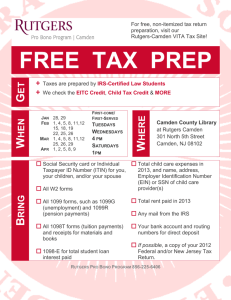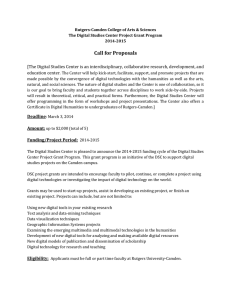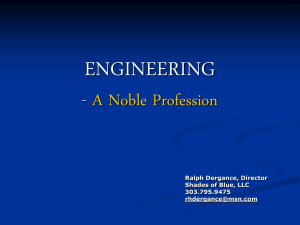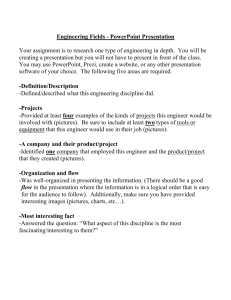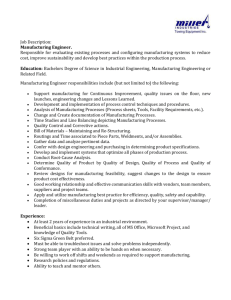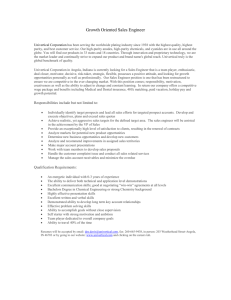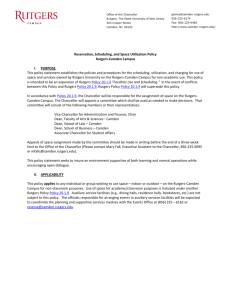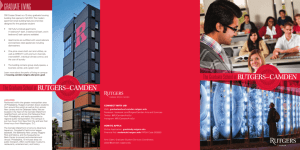physics - Rutgers-Camden Career Center
advertisement
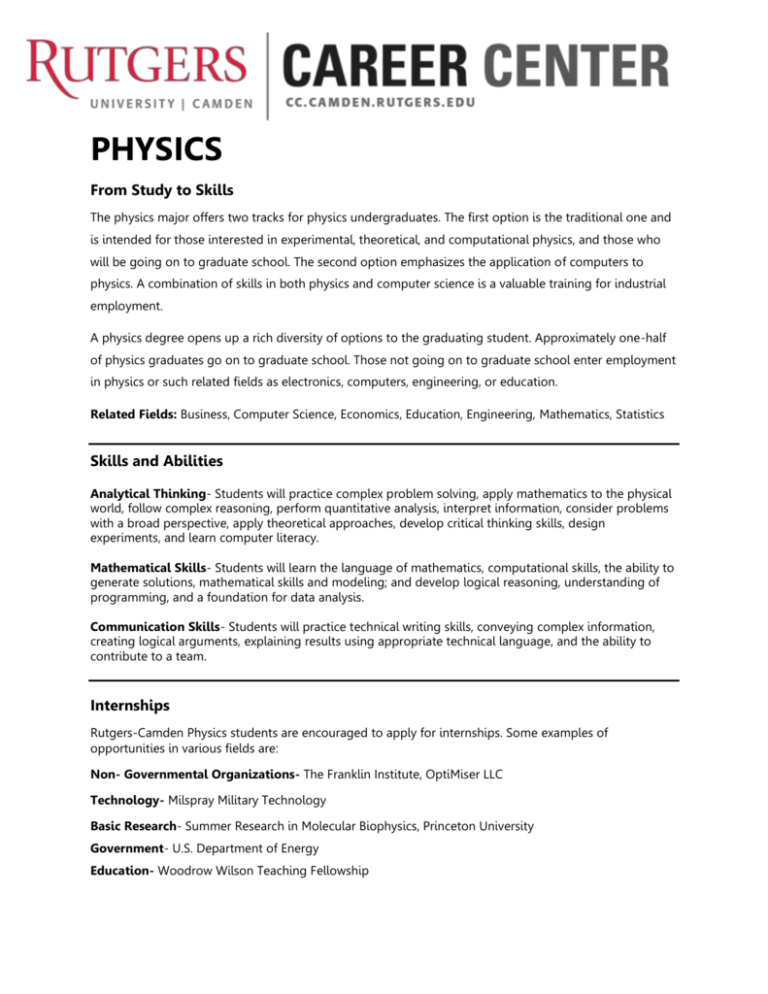
PHYSICS From Study to Skills The physics major offers two tracks for physics undergraduates. The first option is the traditional one and is intended for those interested in experimental, theoretical, and computational physics, and those who will be going on to graduate school. The second option emphasizes the application of computers to physics. A combination of skills in both physics and computer science is a valuable training for industrial employment. A physics degree opens up a rich diversity of options to the graduating student. Approximately one-half of physics graduates go on to graduate school. Those not going on to graduate school enter employment in physics or such related fields as electronics, computers, engineering, or education. Related Fields: Business, Computer Science, Economics, Education, Engineering, Mathematics, Statistics Skills and Abilities Analytical Thinking- Students will practice complex problem solving, apply mathematics to the physical world, follow complex reasoning, perform quantitative analysis, interpret information, consider problems with a broad perspective, apply theoretical approaches, develop critical thinking skills, design experiments, and learn computer literacy. Mathematical Skills- Students will learn the language of mathematics, computational skills, the ability to generate solutions, mathematical skills and modeling; and develop logical reasoning, understanding of programming, and a foundation for data analysis. Communication Skills- Students will practice technical writing skills, conveying complex information, creating logical arguments, explaining results using appropriate technical language, and the ability to contribute to a team. Internships Rutgers-Camden Physics students are encouraged to apply for internships. Some examples of opportunities in various fields are: Non- Governmental Organizations- The Franklin Institute, OptiMiser LLC Technology- Milspray Military Technology Basic Research- Summer Research in Molecular Biophysics, Princeton University Government- U.S. Department of Energy Education- Woodrow Wilson Teaching Fellowship What Careers Are Available For Physics Majors The following are samples of first jobs of Rutgers-Camden Physics majors: Environmental Specialist, NJ Department of Environmental Protection Helicopter Production Engineer, Avionics Lab Technician, Allied Signal Physics Instructor, Camden Charter Academy Process Engineer, Kulite Semiconductor Project Engineer, Lowe Paper Company Quality Engineer, Frigidaire Corporation Research Engineer, Universal Display Corporation Systems Engineer, Compulink Management Center Teacher, New Brunswick School District Technical Consultant, Hamamatsu Graduate School Options While many Physics majors choose to go directly into the workplace after graduation, others will decide to pursue a graduate degree. Rutgers-Camden Physics majors have earned Master’s and Doctorate level degrees in Physics in addition to degrees outside of Physics. Here are just some of the programs that the Rutgers-Camden students went onto after they received their undergraduate degree: Clemson University, Physics Dartmouth College, Computers & Technology Drexel University, Physics Rutgers University, Ceramic Engineering University of Pennsylvania, Physics Resources Consider joining a professional organization such as: Consider joining STEM Scholars or Q-STEP. Assist a faculty member with their research. American Institute of Physics www.aip.org Visit Raptor Link for internship opportunities. American Physical Society www.aps.org Connect with professionals in fields that interest you on LinkedIn. American Association of Physics Teachers www.aapt.org American Astronomical Society www.aas.org American Association of Physicists in Medicine www.aapm.org Career Center: Room 006 Campus Center, Lower Level 326 Penn Street Camden, NJ 08102 856.225.6046 careercenter@camden.rutgers.edu http://cc.camden.rutgers.edu
